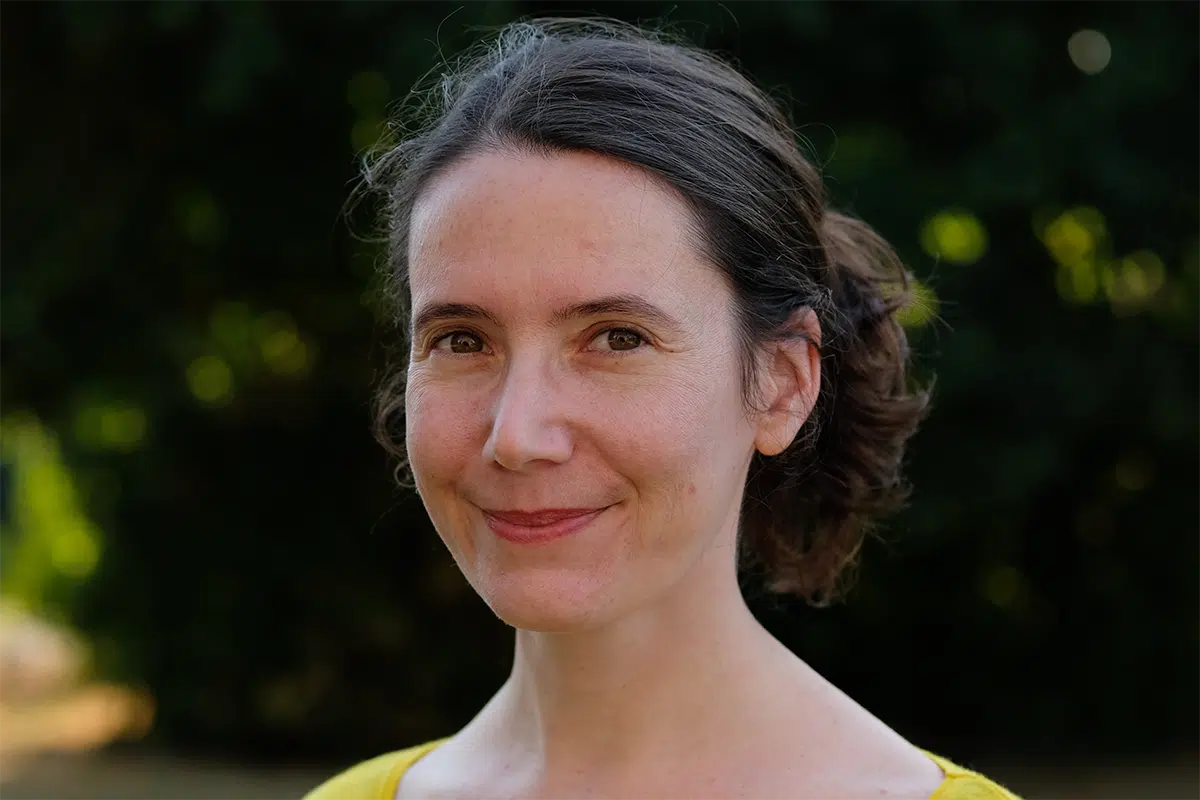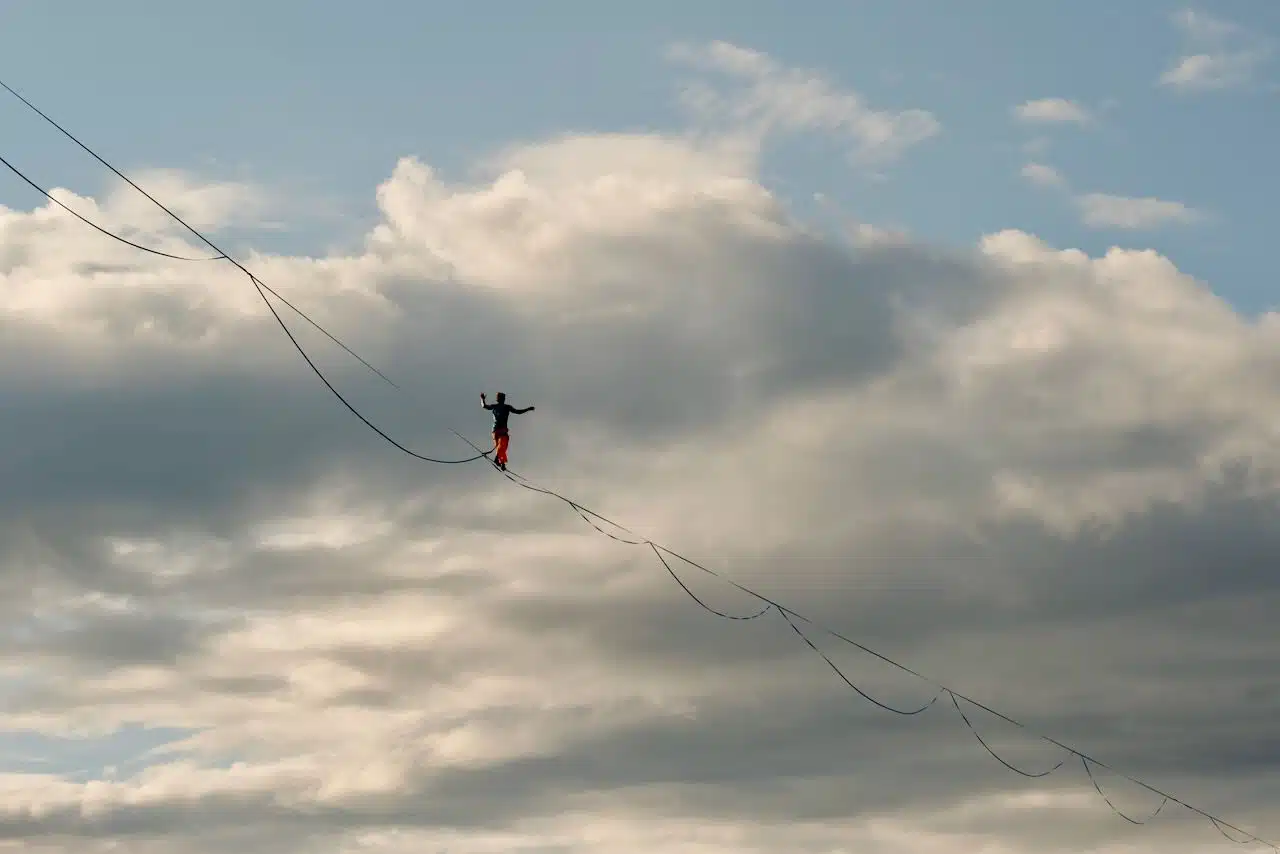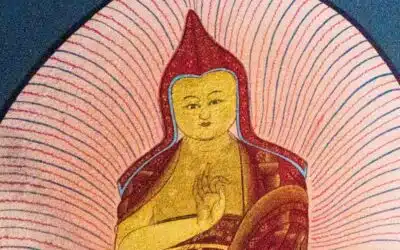Sickness

Written By Maréva Bernard
Blog | Daily Life Testimonials | Reflections on life
In “Sickness,” Maréva talks about the discomfort of illness, which can become a source of training and a connection to the master and to primordial nature.
Series: Difficult conditions in Dzogchen
Sickness
Sometimes we tell ourselves that we are too tired to practice and choose to go to bed instead. It seems even more complicated when we are ill.
When we can no longer sit in a chair, we wonder if we can still practice. The same goes for when we have a toothache. We say to ourselves: “Yes, no, maybe.” Often without certainty.
In Dzogchen, all conditions are those of practice.
So when we are sick, it’s also a condition of practice.
Externally, we may have the impression that the conditions are no longer present.
Our body no longer sits upright. It takes too much effort, we feel more pain, we need to sleep. We can no longer hold the seven-point Vairocana posture.
Mental fog is present. The pain becomes too intense, the drugs numb us, and the fever clouds our thinking. We can no longer concentrate on a specific visualization.
Our mouth is dry and our breath is short. Our hands are too numb to use the mala, our throat too knotted to make a sound, our neck too stiff to look up. We can no longer sing the primordial A.
And yet.
“We can rejoice in this unadorned training ground, where the essential is revealed. ”
Outwardly, this experience is a direct reminder of our body’s impermanence. What we experience today, will be experienced again, albeit more intensely, at the moment of death.
While we have temporarily lost some of our faculties, we become aware of how precious they are. What we took for granted turns out not to be so. We can even broaden our thinking by realizing that the suffering we experience is shared by billions of beings.
We can rejoice in this opportunity to rekindle our motivation to journey toward enlightenment for the benefit of all beings.
Inwardly, it’s the perfect time to call the refuge, because it doesn’t depend on our posture, the clarity of our mind or the vibration of our voice.
We can make wishes and connect with our master, with the primordial nature. This connection gives us the strength to recognize the illusory nature of what we are experiencing, realize that the path isn’t limited to formal practice, and understand that the connection to the master is like the thread of life that links all our experiences. Having experienced it directly, we now know that this link can be recalled anywhere, and will never leave us, not even at the moment of death. Our state allows us to see what holds and is unchanging, whatever the conditions.
We can rejoice in this unadorned training ground, where the essential is revealed.
Ultimately, there’s no difference in the nature of our mind between that day when we ran, valiantly, to the top of the mountain and this one when we’re stuck shivering at the bottom of our bed. As our bodies are bruised and we’re forced to pause for a moment, we can turn to the observer and ask ourselves: “Who’s suffering?”
Then we remember what Jamyang Khyentse Chökyi Lodrö tells us in “The Beneficial Remedy that dispels sickness” :
“ All natural manifestations are sickness.
All sicknesses are primordial wisdom.
Remain without distraction in the state of primordial wisdom.”
Observation returns to the state of primordial wisdom. We can rejoice, for disease then rises as a natural manifestation, like the sun rising in the sky.
Many practitioners have gone through many illnesses, both in the past and today. Through their immense compassion, they show us the way. They show us that the natural state does not depend on physical suffering. That sickness can be a path of compassion and wisdom.
So, the next time we are ill, we can reflect on the teachings we have received. And to the masters to whom we relate. We can think of the nature we have glimpsed.
More Posts
Being Your Own Master
Relationship with a master requires discernment. “Being your own master” offers insights into understanding devotion and avoiding pitfalls.
Phenomena
"Phenomena" is the second entry in a new category designed to improve understanding of essential Dzogchen words and concepts.
The Story of the First Masters: Manjushrimitra
We continue the Stories of the First Dzogchen Masters with Manjushrimitra, who structured the verses of Dzogchen into three series.





